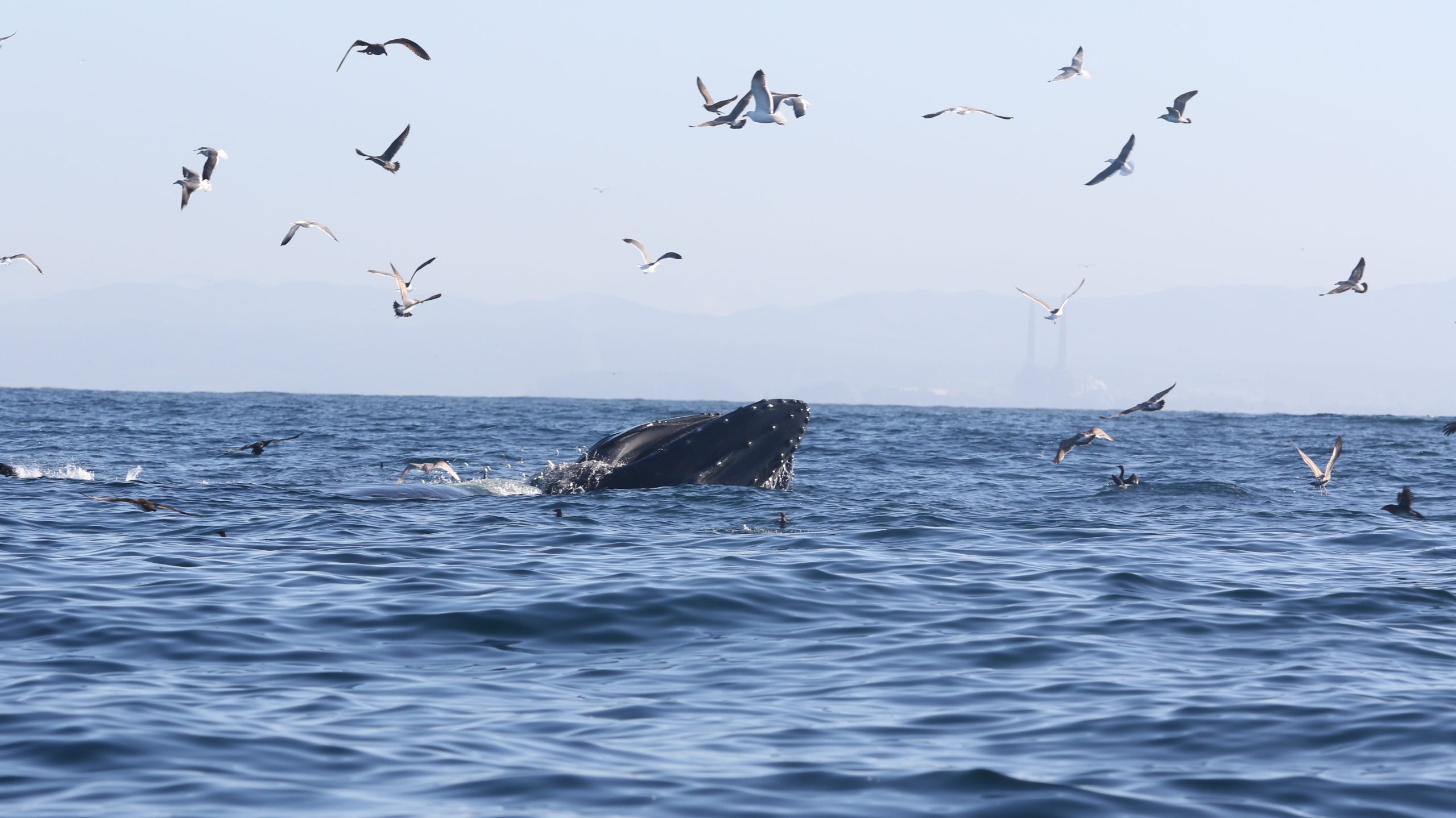
Cascadia’s MARINE Committee Goals and Objectives
Cascadia acknowledges that many members of the diverse areas where we conduct our research are not represented in Cascadia or our programs in Cascadia and therefore we are missing out on important voices, values, perspectives and considerations in our research. We believe this needs to change. We intend to reduce the barriers to all people in hopes of making our research accessible to as many people as possible through more focused programming and collaborations and helping to make this career seen as a viable option to all.
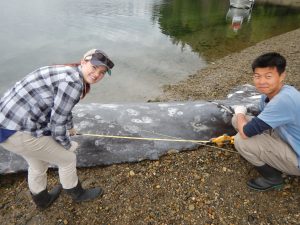
Marine research is part of the STEM (science, technology, engineering, mathematics) family that has traditionally had low participation by minority members. The under-representation of minorities in the sciences has a long history and Cascadia understands that it will not change overnight and it will take dedicated education of the issues, leadership and commitment to start to break down the barriers that have for decades blocked involvement in marine mammal research on the basis of race, gender and socio-economics. Cascadia understands its important position in this field and has a responsibility to take a stand and take steps toward change. Cascadia believes Black Lives Matter. We are committed to educating ourselves about how systemic racism is pervasive in the STEM field and are dedicated to being an organization that honors diversity, inclusion and equity of all persons and will work hard to create a safe space of belonging for all.
As a first step, in the summer of June 2020 Cascadia created a committee to guide the organization to be a more inclusive and equitable organization that better serves the communities and environments that we work in and bring on an educator to help us learn about race issues and help direct and focus our change.
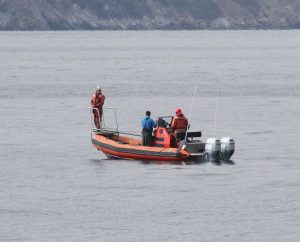
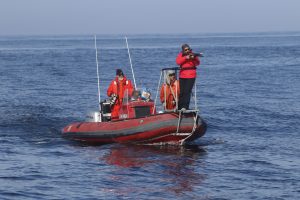
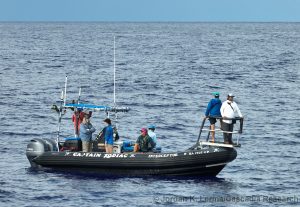
The self named committee, MARINE: — Minority And Race Inclusion in Natural sciences and Education committee is composed of board members, staff, and current and past interns. The committee is currently working on two main issues with the organization that do overlap one another but each have their own distinct parameters and paths: increasing the diversity of our workforce and unpaid internships. Short and long term goals have been established and a couple of these goals have already been accomplished. One of which was to simply post our intentions.
Another goal was to offer supported internships and this has also been met with a generous donation to Cascadia which allows us to offer a bursary to individuals with a financial need. We have also met this goal, by being accepted as a site for two different NOAA supported programs, one, the Hollings Prep Program and In Fish! both which provides a scholarship and a stipend in 2021 and HPP for 2022. For 2023 we hope to continue hosting for these programs.
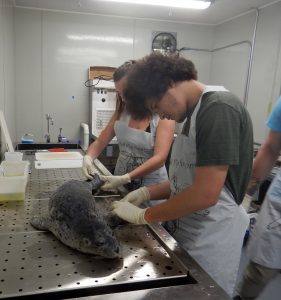
Inclusion of underrepresented persons in Cascadia Research Collective
MARINE’s mission: To increase organizational awareness into why STEM fields and marine mammal research is composed of predominantly white professionals. Actively investigate ways in which CRC has perpetuated that reality and dismantle those barriers, by looking to improve diversity and representation in the marine mammal and CRC workforce through sustained programs that are designed to engage and retain individuals from underrepresented communities in the marine mammal sciences.
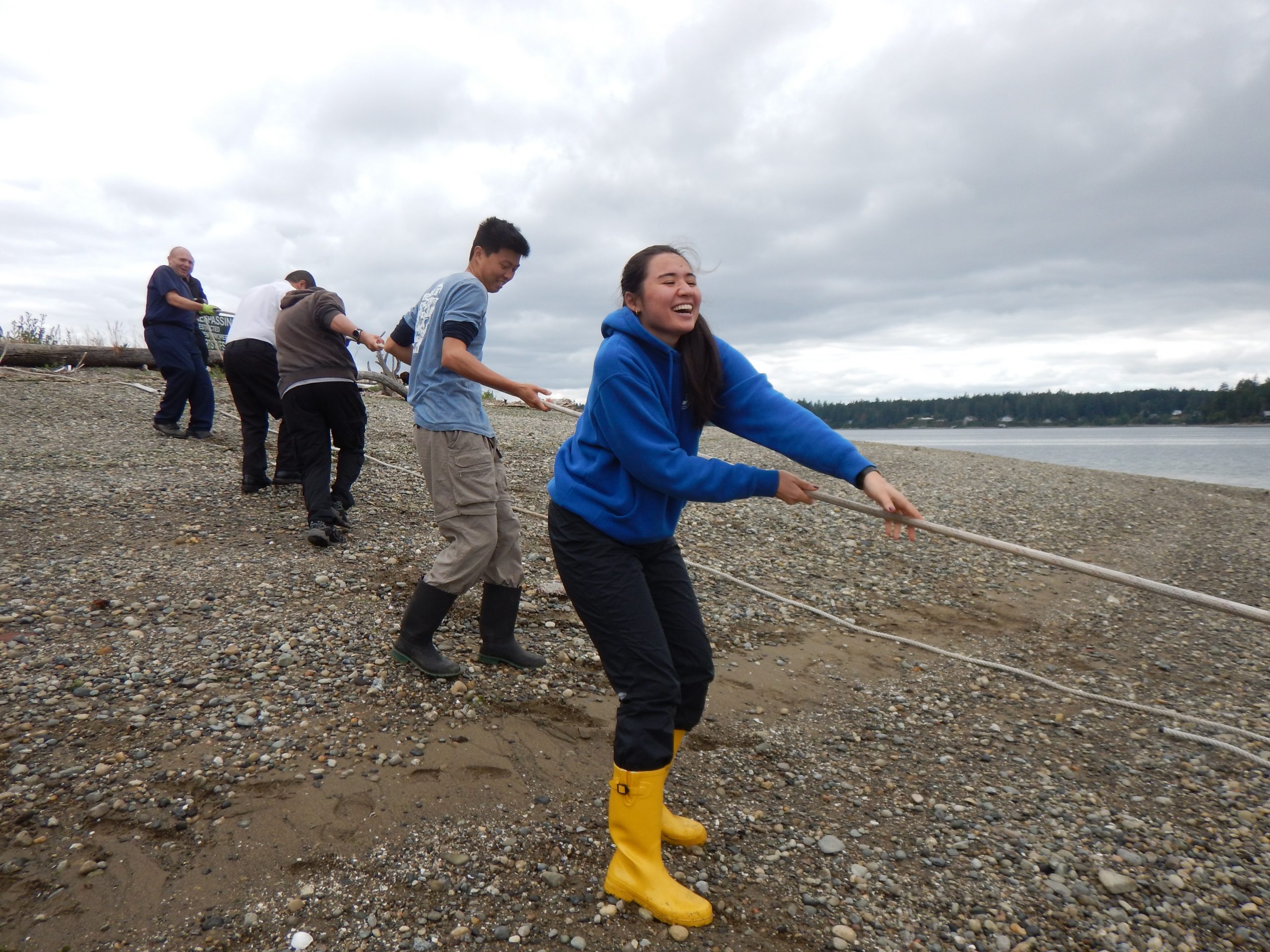
2020 Goals
Organization BOD, staff and current interns take part in racial education program to help sculpt pathways forward to a more inclusive and diversified organization. This goal was met in 2021 with a workshop provided by Parfait Bassale, the Executive Diversity Officer with the Diversity, Equity, and Inclusion Center at the Presidents Office at South Sound Community College on April 19, 2021. Take some time to learn more about Parfait here. Marine Committee met at the beginning of Feb 2023 and members are looking into more educational opportunities or ways our organization can come together, for example; reading articles on inclusivity and discussing them during staff meetings or taking part in local events, talks, seminars and discussing them at meetings.
Generate ideas of programs, actionable items for organization. This will be an on going goal for this committee, some ideas generated include high school programs and areas we have not reached out to, changing and adding to our personnel policy to include safety policies (for both physical and emotional safety), and creating a supported internship fund among other ideas.
Make and publicize a diversity and inclusion statement regarding racial stance on website and Facebook/Instagram/Twitter. This was completed in February of 2021. Please see our statement here.
e.g.; Cascadia Research Collective recognizes that systemic socio-economic and racial barriers have limited accessibility to marine mammal research, decreasing diversity both at our organization and in our field, and that this has a detrimental effect on the work that we do. As an organization, we strive to change the status quo by breaking down barriers.
Specific statement about support available for internships. This was completed in February of 2021 and we had offer stipends to four different interns since then, however we are continually working on making this even better! Check out our intern page with this information. And check out our intern page to meet the current and past interns that we have been proud to host and work with us!
Work with The Evergreen State College’s Native Pathways program to understand and start to break down barriers with Native American tribes in our area and in the regions we undertake research projects. We have had many meetings with the director of the program and professors as well as presented to the student body of the program to talk about ways to make our internship and programs more inclusive.
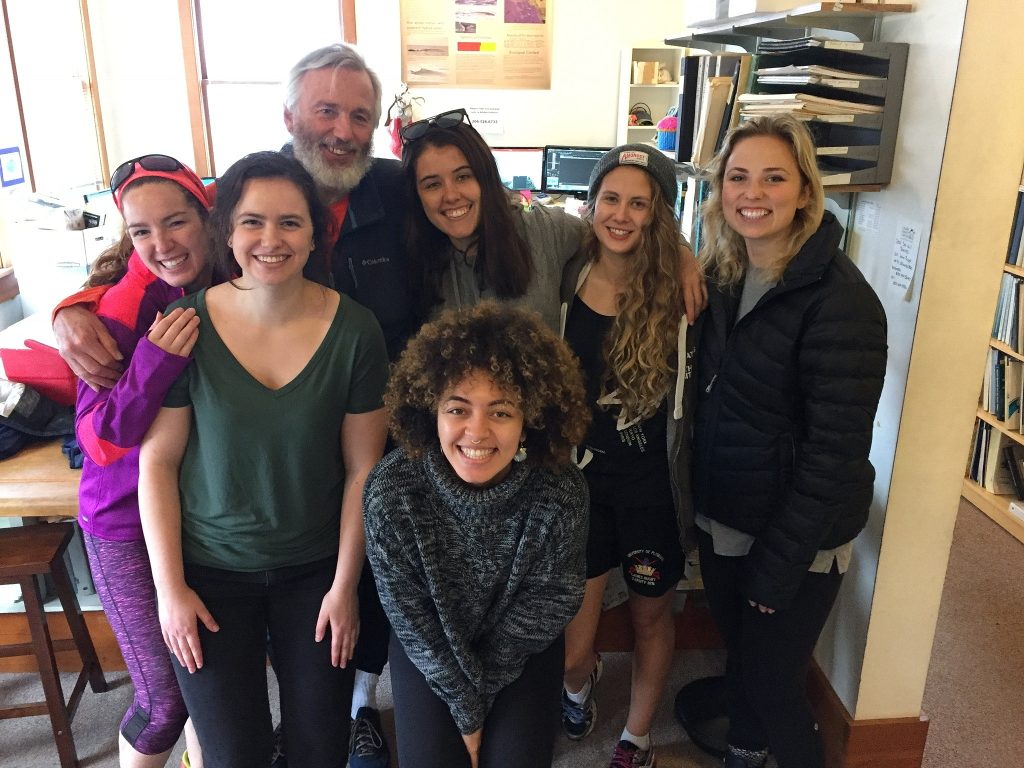
2021 Goals
- Provide additional workshops or educational seminars about systemic racism. Completed.
- Contact organizations about leadership and staff training regarding diversity of abilities. Completed.
- Consider avenues to make outreach more accessible across a range of abilities, languages, etc. Did not attain.
- e.g. social media posts with a description of the photo for visually impaired, and/or translated into multiple languages;
- e.g. remote internships for people who cannot access the CRC building because it is not ADA compliant and for those who financially cannot afford to come to Olympia, Washington.
- Investigate funding options for more organizational trainings on inclusion and belonging. Did not attain.
- Put into place sections in Cascadia a personnel policy that outlines a behavior code of conduct for employees that states avenues and paths for staff, interns and graduate students with complaints, and that intentionally works on creating a safe, free of harm culture. On going.
- Research funding options for a dedicated position at Cascadia Research to take on education (including oversight of the internship program) and outreach programs.
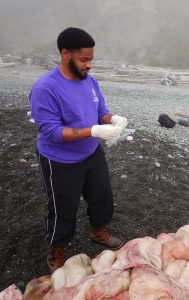
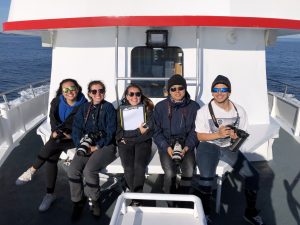
5-year goals
- Investigate funding and support for a full time education and outreach staff position whose responsibilities include overseeing internship programs, outreach and communication.
- Establish formal connection with PNW tribes with k-12 programs, undergraduate and graduate educational programming.
- Establish formal connections with schools in our areas of research (Wa,Or, Ca, HI) that serve under-represented populations On going.
- Establish network of local/regional/national minority-serving institutions for outreach/connections to build applicant pool (methods of outreach to include email, social media, in-person presentations, research-based curricula). Outside University created project for this with our written support and did received funding through ONR and we hope to host some interns in 2024.
- Formalize a mentorship program to provide career guidance, networking, etc. to current and previous interns through CRC and their network of contacts to help improve and understand retentional issues. On going.
Restructuring Internship Offerings at Cascadia
MARINE’s mission: Cascadia’s internships historically have been unpaid. We recognize that by only offering unpaid internships, Cascadia has self-selected individuals who have either the financial and institutional means, or intellectual support (or all three) and have therefore not provided an opportunity to others who do not have those in their life or are limited. It is understood that this may deter or prevent qualified candidates from applying and taking part in an internship. MARINE hopes to improve diversity and representation in the marine mammal workforce and the CRC workforce through sustained programs designed to engage, lift up and retain individuals that we have been missing out on.
2020 Goals
- Establish CRC definition of supported internship (room/board offered in-kind, or monthly stipend of $XX, and/or airfare to/from Olympia, etc). This was completed in 2020 with the help of a donation to Cascadia to help start a fund for interns. The process for providing funds, the amount awarded, the application process was developed through 2020 and an intial process implemented in February of 2021. Two interns in the Summer of 2021 have been awarded a stipend, two in 2022 were awarded. This process will be actively evaluated each intern session. Click here to learn about it and how to apply.
- Begin to design formal procedures for offering support (how to advertise, how does one apply for this, implications to CRC–who and how is needed to be determined. This was completed in February of 2021.
- Reach out to various regional/national programs supporting paid internships to explore options for collaboration (Doris Duke Scholar Program, Wa Sea Grant Keystone Fellowship, Americorp, MarSci-Lace…The MARINE group was successful in creating a partnership with NOAA to be a host site for a Hollings Prep scholar, which is a regionally focused funded internship program geared for increasing diversity in STEM. Learn about it here. We also are partnering with the NOAA IN FISH! program, an inclusive NOAA Fisheries program designed to bring diverse talent to marine sciences. Click here to learn about another similar program through Woods Hole, the Woods Hole Partnership Education Program (PEP).
- Reach out to other paid internship program coordinators to learn about how their programs work, where they get their funding, sustainability, etc. On going.

Intern Nana Edamoto helping at gray whale necropsy in March of 2021.
2021 Goals
- Offer 1+ supported internship(s): Completed. For the Summer 2021 internship session, we are providing two interns with a stipend.
- Establish collaborations with 1+ minority-serving institution each on a local, regional, and national level. Cascadia leadership has written a letter of support for a proposal to do this. It has passed the pre-proposal stage. We are hopeful this will be funded.
- Outline goals/mission of mentorship program, make list of potential mentors in the CRC network, connect 2021 summer interns with mentors based on career interests. On going.
- Create a formal yearly? Review process by which CRC measures its success and commitment to this committee’s goals. Did not complete.
- Improved Cascadia’s personnel policy, code of conduct to ensure we are offering a safe culture for all persons. Did not attain.
5-Year goals
- Financially supported internship program for up to 10, 10-week internships annually in the summer (June-August) (In 2021 we had 2 and in 2022 we had another 2!)
- Potentially through the NSF REU Sites program or…..
- As part of a larger collaborative network through a program such as NSF INCLUDES, and/or
- Through the inclusion of internship support on new grants written by CRC Did not attain.
- Established network of local/regional/national minority-serving institutions for outreach/connections to build internship applicant pool
- Potential to link CRC with other interested people/organizations in the Pacific Northwest to build a collaborative partnership similar to PEP Alaska or PEP Woods Hole. Successful collaboration in 2021 with InFish a PEP program. Hoping to continue in 2022.
- Established methods of outreach to this network (e.g. email advertisements, social media, in-person presentations, research-based curricula) Did not attain.
- Formalized mentorship program to provide career guidance, networking, etc to current and previous interns through CRC and their network of contacts. Did not formally attain–but through HPP and InFish (and ONR?) this happens/will happen somewhat organically—though should think about how to reach out to past interns (2021) to help with 2023 interns.
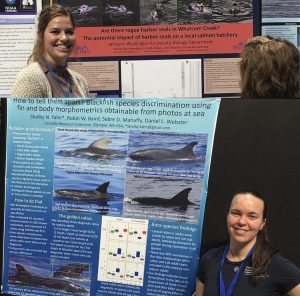
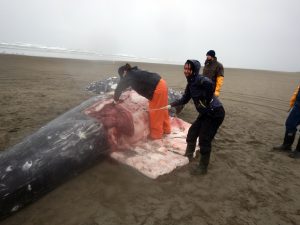
Cascadia’s MARINE committee is dedicated to improving the organization’s mission of research, conservation, education AND learning about our role in systemic racism and how we can create and continually improve a sense of belonging for all in marine mammal biology. After forming this committee, several staff, Board of Director members and interns took part in the URGE: Unlearning Racism in the Geosciences curriculum in the winter and spring of 2021. This 16 week program provided rich education and lessons that helped us directly with many of our goals for this committee. Our Pod for URGE, Risso’s worked hard on several deliverables for that program, click here to read some that successfully were uploaded (some difficulties with this). We invite you to come back often to check on our progress and please feel free to contact Annie Douglas for more information at abdouglas@cascadiaresearch.org.
